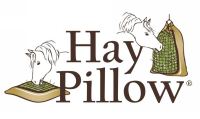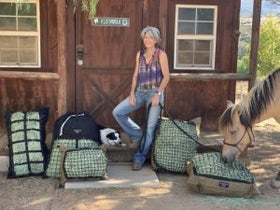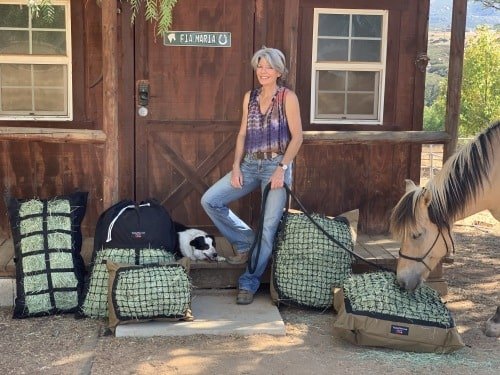Why Does My Horse Drink So Much Water?
Equines that drink excessive amounts of water have not developed a bad habit. They do so because of a health condition or as a coping mechanism. Horses rarely, if ever, do anything that doesn’t have a purpose.
Read on to learn about the possible causes of drinking too much water, associated health risks and potential solutions.

What inspired me to write this article? A conversation with a customer of course! Her beloved miniature horse was on a “diet” with no attributable health conditions. She had been instructed to weigh and feed 1% of his body weight of hay per day, without addressing the actual diet itself. Her efforts to slow down his hay consumption still left this mini without forage for 16-18 hours a day.
To complicate matters, he was drinking excessive amounts of water and licked his salt block frequently. She was instructed to remove his salt block, which was his only source of sodium.
Recall he had no health conditions that might explain his excessive thirst - such as Equine Cushings Disease (PPID), Insulin Resistance (IR), Diabetes Insipidus or kidney disease. His water consumption could have been a physical or mental coping mechanism, such as:
- Neutralizing the gastric acid build up in his empty stomach
- Filling his stomach with the only available resource (hunger/satiation)
- Boredom
- Stress
- Confinement
But What About the Salt?
Was he drinking more because he was eating more salt? Or was he eating more salt because his excessive drinking caused his electrolytes to be severely diluted? Consider the difference of a teaspoon of salt dissolved in 5 gallons of water compared to one gallon of water. It's much more diluted - and deficient - in the 5 gallon example.
In this scenario, he was inherently compensating for the loss of electrolytes by licking his salt block. Salt is the only mineral horses have an identifiable craving for.
Sodium is an electrolyte - and the most crucial mineral in the equine diet. Salt:- Helps to maintain optimum pH levels and body fluid equilibrium
- Is necessary for proper nerve, digestion and muscle function (including the heart and intestines)
If your horse is drinking excessive amounts of water, his electrolyte requirements (including sodium) increase proportionately.
All horses should be fed at least the minimum daily requirement of loose salt in supplements and provided with access to a white salt block and fresh clean water. Learn more about the importance of salt: Why Horses Need Salt & Why Salt Blocks Are Not Enough.
What About the Forage Restriction?
Feeding 1% of body weight in forage per day will rarely, if ever, satisfy a healthy equine's satiation. It’s just not enough volume to occupy or satisfy his inherent need for feed. As a grazing herbivore, your horse is physically and psychologically designed to forage the majority of his waking hours.
Slow feeders are an effective tool for trickle feeding - but not an end-all/be-all solution - especially if they cause stress or frustration. Stress increases gastric acid production. Please consider that horses fed meals are typically anxious when fed and tend to be far less patient with slow feeders. Patience level trumps ability when choosing an appropriate mesh size.
If your beloved equine is without forage for periods of time, he or she may be drinking water in an attempt to neutralize gastric acid - combined with the need for satiation or as a mental coping mechanism. Satiation and environment are a big deal to herbivores.
The Solution? Address His Environment & Diet
1) Provide an appropriate environment for this mini to help satisfy his natural instincts (despite domestication) and to enrich and enhance him mentally and physically.
The Standard Hay Pillow encourages movement and promotes a natural grazing position
2) Find an appropriate source of hay that is less palatable, low in digestible energy and 10% or less in NSCs (bland diet food) so she can be confident about feeding more or free choice. Offering a less palatable forage will naturally curb your equine's enthusiasm to eat as quickly as possible. Testing your hay is optimum.
By feeding more volume you are providing:
- Much needed chew time. Chewing and swallowing activate saliva production (an alkaline substance). Saliva buffers gastric acid by increasing the pH of the stomach. Horses, donkeys and mules produce gastric acid continuously in preparation for constant uptake.
- Fiber/volume to satiate. This keeps your horse occupied while promoting healthy populations of beneficial bacteria in the digestive tract.
It is important to note that increased hay/fiber consumption promotes increased water consumption in healthy horses.
Ensure the minimum sodium requirements are consumed daily in feed. Whether idle or working, free choice loose salt or white salt blocks should be available at all times to allow the horse to compensate for additional needs.
Remember to Supplement for Balance
Every hay-only diet requires supplementation. No hay is ever balanced to itself (optimum ratios), nor will it contain the National Research Council (NRC) minimum requirements of all vitamins and minerals. If you don’t test and balance your hay, feed a comprehensive concentrated vitamin/mineral supplement to promote optimum immune, hormone, neurological and thyroid function.
All hay only diets should include a healthy source of omegas with optimum 3-6-9 ratios (ground flaxseed or chia). Omegas are rapidly destroyed through the curing process and storage of hay.
Closing Thoughts
Always explore possible health conditions for excessive thirst. Also consider it can be an attempt to compensate for satiation, physical discomfort (gastric acid build up or ulcers), boredom, confinement or stress.
By determining the cause, you can devise a solution!
Helpful Resources
- Can Horses Eat More Hay Without Weight Gain? The Surprising Factors
- Are You a Prisoner of Feeding? Here's How I Broke Free
- How & Where to Test Your Horse's Hay & Interpret Results
- How to Introduce & Incorporate Free-Choice Forage: An Action Plan
- 9 Benefits of Slow Feeding Horses - Get Slow Feed Savvy
- Equine Gastric Acid - 12 Facts You May Not Know
- Equine Gut Health - The Need for Feed
- Why Horses Need Salt & Why Salt Blocks Are Not Enough
- A Safer Always Have Hay Source – Mature Grass Hay
- Sugar Content of Pasture & Hay: Q & A with Katy Watts, Founder of Safergrass.org
References
- Greco, D. (2019, August). Diabetes Insipidus in Animals. Retrieved from https://www.merckvetmanual.com/endocrine-system/the-pituitary-gland/diabetes-insipidus-in-animals
- Waldridge, B. (2016, July 8). Polyuria and Polydipsia. Retrieved from https://veteriankey.com/polyuria-and-polydipsia/




